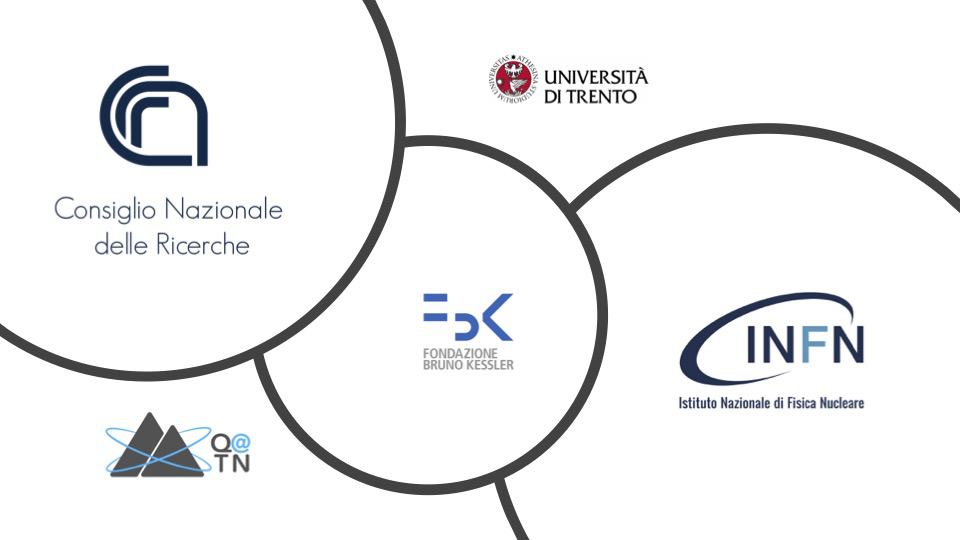In fundamental physics, such as in the axion search, linear amplifiers become a limitation when working at frequencies as high as 10 GHz. Reaching sensitivities necessary to the detection of QCD axions at high frequencies, therefore, requires the use of single-photon sensors. The detection of single microwave photons with good efficiency and low dark counts is a hard challenge, but Josephson...
Quantum sensing is a rapidly growing field of research which is already improving sensitivity in fundamental physics experiments. The ability to measure physical quantities through quantum devices received a major boost from the application of transmon qubits and the improvements in their engineering and fabrication. The Qub-IT project goal is to realize a transmon-based itinerant...
We discuss the quasiclassical modelling of a Josephson Traveling-Wave Parametric Amplifier (JTWPA). This is a device able to provide parametric amplification through a metamaterial composed by coplanar waveguides embedding several Josephson junctions (JJs), taking advantage of the properties of these nondissipative and nonlinear superconducting components [1, 2].
A JTWPA composed by an array...
Physical systems in proximity of phase transitions develop a diverging susceptibility, and so they represent a compelling tool for sensing applications. Iconic examples of critical sensors of high technological relevance are bubble chambers and transition-edge detectors. Even as they involve quantum processes, these devices are based on a classical sensing strategy. However, critical quantum...
Quantum gate synthesis and control problems exhibit a vast range of external parameter dependencies, both physical and application-specific.
In this article we address the possibility of learning families of optimal control pulses which depend adaptively on various parameters, in order to obtain a global optimal mapping from the space of potential parameter values to the control space, and...
We present a readout scheme for superconducting qubits that combines a shelving technique, to effectively increase the qubit relaxation time, and a two-tone excitation of the resonator to rapidly distinguish among qubit populations in higher energy levels. Using a machine-learning algorithm to post-process the two-tone measurement results, we further improve the assignment fidelity. We...
Environmental radioactivity was recently discovered as a potential limit for superconducting quantum bits. We present recent works proving that ionizing radiation lowers the coherence of singe qubits and induces correlated errors in qubits arrays. We also present preliminary studies showing that operating flux qubits in a low-radioactivity environment improves their performance.
It is common sense that when a quantum coherent system is not perfectly isolated from the environment, quantum effects are destroyed and the system fundamentally follows the classical mechanics’ rules. This is not always the case. Indeed, the dissipative interaction, namely the interaction between a quantum system and its external bath, can lead to an enhancement of quantum effects.
In this...
In the landscape of superconducting Traveling Wave Parametric Amplifiers, an interesting approach is represented by devices based on the non-linearity of kinetic inductance of superconducting films. In particular, the employment of lumped element artificial transmission lines promises to deliver a parametric amplification over a wide bandwidth along with a high dynamic range, while limiting...
The growing interest in quantum technologies, from fundamental physics experiments to quantum computing, demands for extreme performance and quantum-limited electronics. Superconducting microwave amplifiers, due to their dissipationless nature, exhibit outstanding performances in terms of noise (quantum limited), and gain. However, bandwidth and saturation power still show space for...

